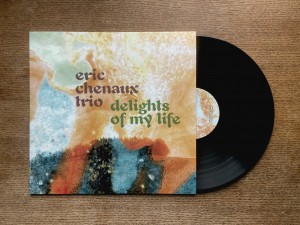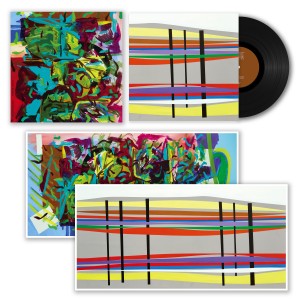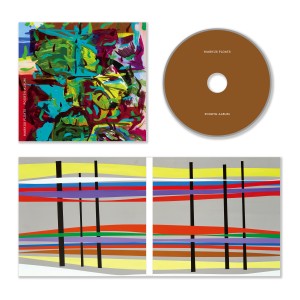
Ball and Menuck began creating music in and for the bleakest moments of Montréal winters: “We’re honoring that idea of winter, when you come inside and your house is warm, a place that only exists because of how cold it is outside,” says Menuck. They later recruited Downs and Patch to flesh out their initial ideas. Menuck met them in 2015 when recording Ada’s final album at Montréal’s Hotel2Tango — where they reconvened to make this record.
“NO MORE APOCALYPSE FATHER” is an album about witnessing bleakness from a place of safety. Carrying newfound descriptive depth, thanks to the quartet’s open-ended songs freeing him from writing in meter, Menuck likens his lyrics to photorealism. On opener ‘Rats and Roses’ he sings of an unnamed city struck by an unknown cataclysm, but the details are local: specifically, his neighbors inadvertently poisoning birds when tackling a rat infestation. It’s backed by blown out synths and guitars reaching a soaring crescendo. “Seeing things from a distance and not being able to intervene happens a lot on the record,” Menuck explains. “If you’re a feeling and thinking person, that’s just part of the human condition. We watch horror unfolding from afar, unable to do anything concrete to change it.”
A powerless witness, able to describe but not intervene. ‘Dangling Blanket From A Balcony (White Phosphorous)’ references Michael Jackson holding his child over a hotel balcony in 2002 the bizarre media spectacle still lodged in Menuck’s psyche. This and the album’s closing track also elegize white phosphorous, a technology of war designed to light up battlefields but capable of inflicting horrific burns on those it touches. Illumination and horror in one, here underpinning scenes picturesque and terrifying. “The last song ‘(Goodnight)
White Phosphorous’ is deliberately like a lullaby,” says Menuck. “Written from the viewpoint of watching white phosphorous falling outside your window.”
Scorched and tarnished and laden with harrowing imagery, “NO MORE APOCALYPSE FATHER” is also a record bathed in light: the bewilderment of hopeful spirits witnessing despair, watching a blizzard of distress unfold outside from a place of relative shelter and comfort. You could call that emotional ambivalence, maybe numbness. But those words are too passive for the weight of conflicted feeling resonating through the album.
“I never know how I feel on an overcast day when the sun is still bright despite the grayness and the light is very flat. The colours become more saturated, and you see a single flower, say a morning glory, whose colour is so vibrant beneath the gray, I don’t know if that’s a lovely sensation or a terrible sensation. It’s both,” says Menuck.
TRACK LISTING
Rats And Roses
Tremble Pour Light
No More Apocalypse Father
Uncloudy Days
Dangling Blanket From A Balcony (White Phosphorous)
(Goodnight) White Phosphorous


